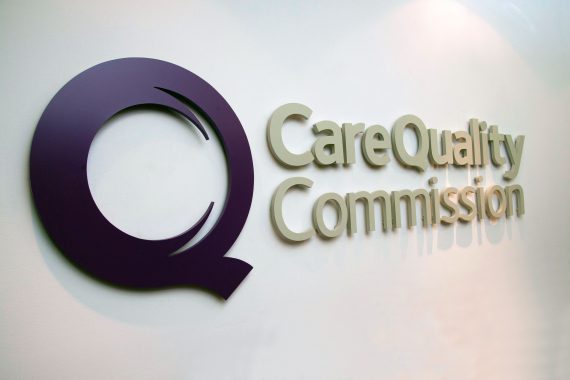The CQC has admitted in court that it was ‘premature’ in removing registration from two GP partners, which forced the practice to close.
The Long Street Surgery in Leicestershire had been placed in special measures last year, but the regulator performed two surprise inspections part-way through the process, after which it applied to court to remove the GPs’ registration.
However, the regulator decided not to contest an appeal by the practice, agreeing to a ‘consent order’ instead.
A CQC spokesperson told Pulse that it agreed to the consent order to reduce costs to the taxpayer, as the GPs provided a written undertaking that they will not look to take the contract back so any ruling would be ‘academic’.
But the lawyer for the practice said that the fact the CQC agreed to the consent order proves that the CQC was in the wrong, there was never any risk to patients and they should never have lost their practice in the first place.
The partners appealed the original court order for their CQC registration to be cancelled, with the hearing listed to begin 3 August and last for eight days.
But no evidence was heard because the CQC ‘accepted’ that its inspections as well as application to the court had been ‘premature’.
The ruling said: ‘Upon the Respondent [the CQC] accepting that its inspections of the 7th and 15th December 2015 and the application dated 17th December 2015 to the Leicester Magistrates’ Court on the 21st December 2015 was premature in that it was undertaken prior to the Special Measures period ending… it is ordered by consent that the appeal is allowed.’
But the regulator has claimed that it stands by its actions.
A spokesperson told Pulse that the judge had said this case was over an ‘academic issue’, so there was ‘no practical benefit to anyone as a result of this [tribunal] because the provider was no longer providing a service.’
They added: ‘Taking into account the cost to the public purse of an eight day tribunal hearing and in light of the provider accepting that it had no intention of running a service, as well as the written undertaking, CQC took the decision to conclude the case by way of a consent order.
‘This consent order ensured that there would be absolutely no risk to patients formerly under the care of this provider and that the provider would not be able to continue to provide services.’
But the GPs’ barrister Simon Butler told Pulse that the CQC’s application to the Magistrates’ Court for an order cancelling the registration was ‘draconian and has very serious consequences for the registrant’.
He added: ‘On appeal [the tribunal judge] may confirm the order or direct that it is to cease to have effect. The judge would only confirm an order, if he/she was satisfied that there was indeed no serious risk to life, health or well-being at the date of the application.
‘[In this case] Judge Lewis ordered that the order must cease to have effect, namely that the order should never have been made.’
In October 2015 the practice was inspected, found inadequate and placed in special measures. A date for reinspection was set for April 2016.
But when new information came to light, CQC reinspected in December and decided it needed to take out a court order to revoke the registration immediately.
Since then the practice has been under caretaker management and the CCG terminated the PMS contract in May this year.
The main issue raised by inspectors was that they had not accurately logged hospital letters and medication reviews on their systems.
As a result of all this both GPs had conditions placed on their GMC registration, have had issues with indemnity, but are now both back in sessional GP work.

















